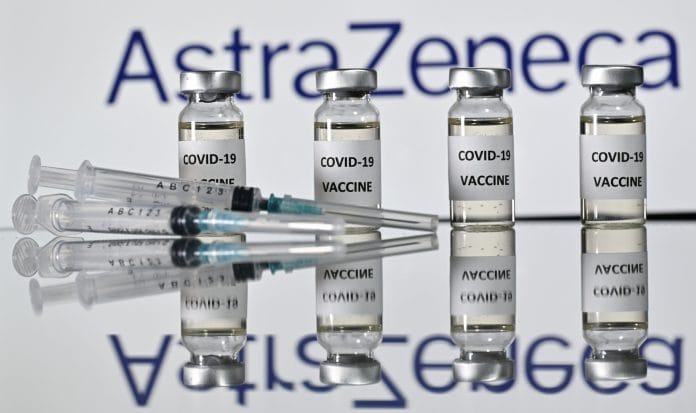London: AstraZeneca Plc and the University of Oxford’s Covid-19 vaccine won U.K. clearance, marking the first approval worldwide for a shot that’s faced questions but will be key to mass immunizations.
The vaccine will be prioritized for the country’s most vulnerable groups, with shots starting Monday, according to the government. It’s the second coronavirus injection to be cleared for emergency use in the U.K. after Pfizer Inc. and BioNTech SE’s in early December.
The move will help the U.K. ramp up vaccination and provides vindication for the homegrown shot, which has drawn scrutiny over discrepancies in its clinical-trial results. The shot can be deployed swiftly because it’s easier to transport and store than the Pfizer-BioNTech one, requiring only refrigerator temperatures rather than deep freezing. The U.K. has bought 100 million doses.
A first dose of the AstraZeneca-Oxford vaccine will be given to as many people as possible, followed by a second shot four to 12 weeks later. A government advisory group said the priority should be to vaccinate large numbers as quickly as possible rather than completing a two-dose regimen right away.
AstraZeneca shares rose as much as 1.8% early Wednesday in London.
The approval comes as the U.K. seals its divorce from the European Union with a trade deal and tightens lockdowns amid a new surge on coronavirus infections that’s straining hospitals. The U.K. reported a record number of fresh daily Covid cases Tuesday, as a new variant of the pathogen raises concern globally.
The country’s vaccination program has advanced quickly, with more than 600,000 people given shots by Christmas. The U.S. is immunizing an average of only 200,000 people a day, with many states having used just a small percentage of the shipments sent to them this month.
“We will start to get ahead of the pandemic, protect health and economies when the vulnerable are vaccinated everywhere,” said Andrew Pollard, Oxford’s lead investigator for the vaccine.
The new vaccine has faced questions because of differing results from two dosing regimens in trials.
When patients were given two full shots, the vaccine was 62% effective — less than the Pfizer-BioNTech shot and another from Moderna Inc. A group that accidentally received half of the first dose showed better protection, with efficacy reaching 90%. But participants were 55 years old or less, and because older people who are most at risk of severe Covid-19 often show more sluggish immune responses, the results leave some doubt as to whether the efficacy will stand up to further testing.
Also read: Argentina begins Covid vaccination drive with Russia’s Sputnik V
US trial
A U.S. trial that aims to evaluate the AstraZeneca-Oxford shot in 40,000 people is ongoing and should clarify some of these questions, with results expected early in 2021.
The vaccine has been approved by the U.K. on the basis of a two full-dose regimen. It was cleared for all adults over 18, with the first doses set to be released to the U.K.’s National Health Service on Wednesday ahead of the start of vaccinations in January.
The U.K. may be soon followed by others, including India, though the European Union is not expected to act on the vaccine until at least February. The U.S. has also said approval is some ways off. Astra said Wednesday it is seeking an emergency-use listing from the World Health Organization so that the shot can be made available to low- and middle- income countries as quickly as possible.
Developing countries have been counting on the success of the Astra-Oxford shot due to its comparatively easy storage conditions and lower price. The vaccine, which the partners have committed to provide at cost during the pandemic, accounts for more than 40% of supplies going to low- and middle-income countries, based on agreements tracked by London-based research firm Airfinity Ltd.
“This is a moment to celebrate British innovation,” Health Secretary Matt Hancock said. “This vaccine will be made available to some of the poorest regions of the world at a low cost, helping protect countless people from this awful disease.”
The U.K. was the first western country to approve a vaccine against Covid-19 in December. The National Health Service has said it hopes to be able to offer every vulnerable person a shot by late spring as more supplies become available. – Bloomberg
Also read: Europe rushes to boost Covid vaccine output as it looks to exit pandemic quickly






